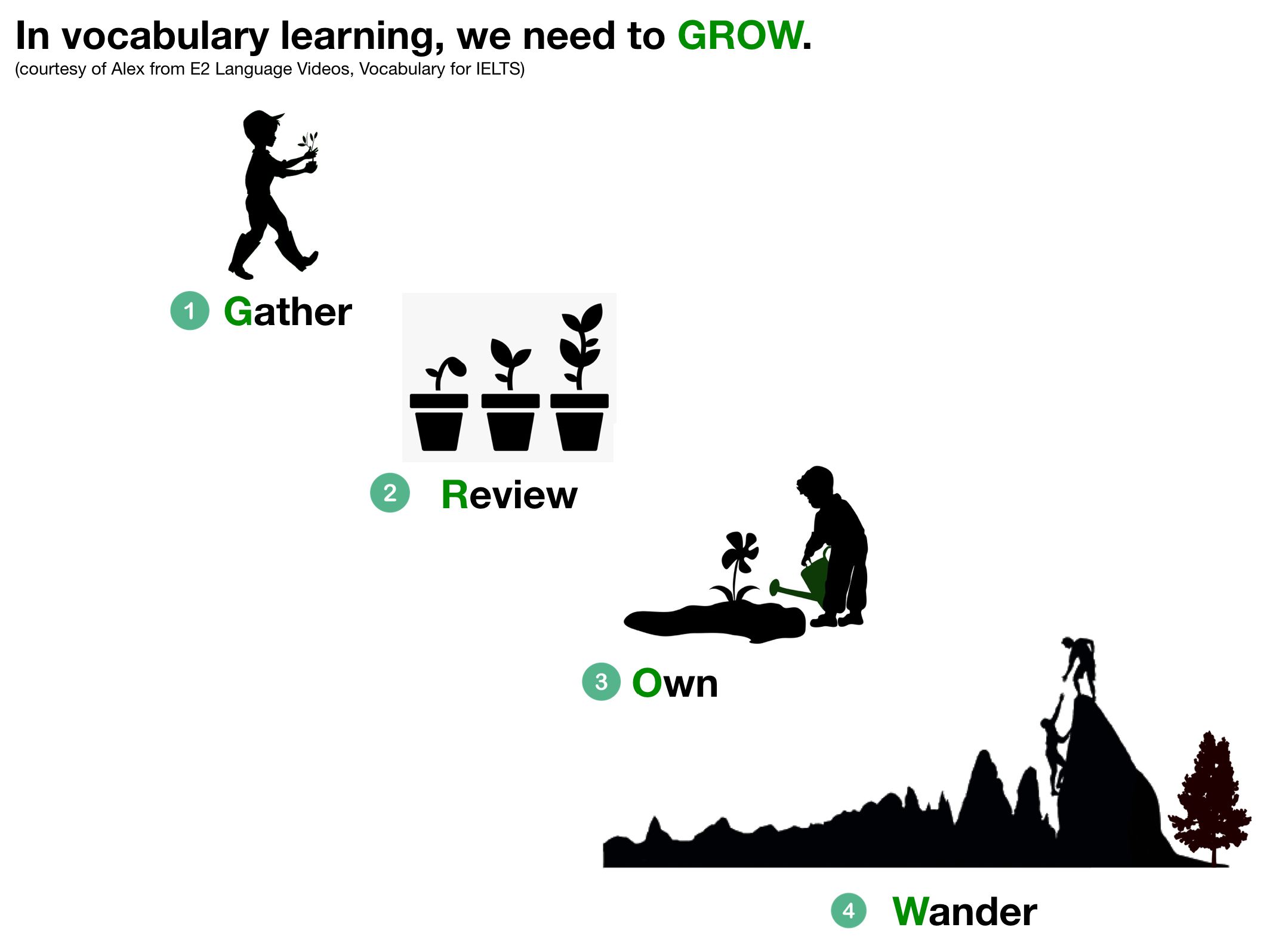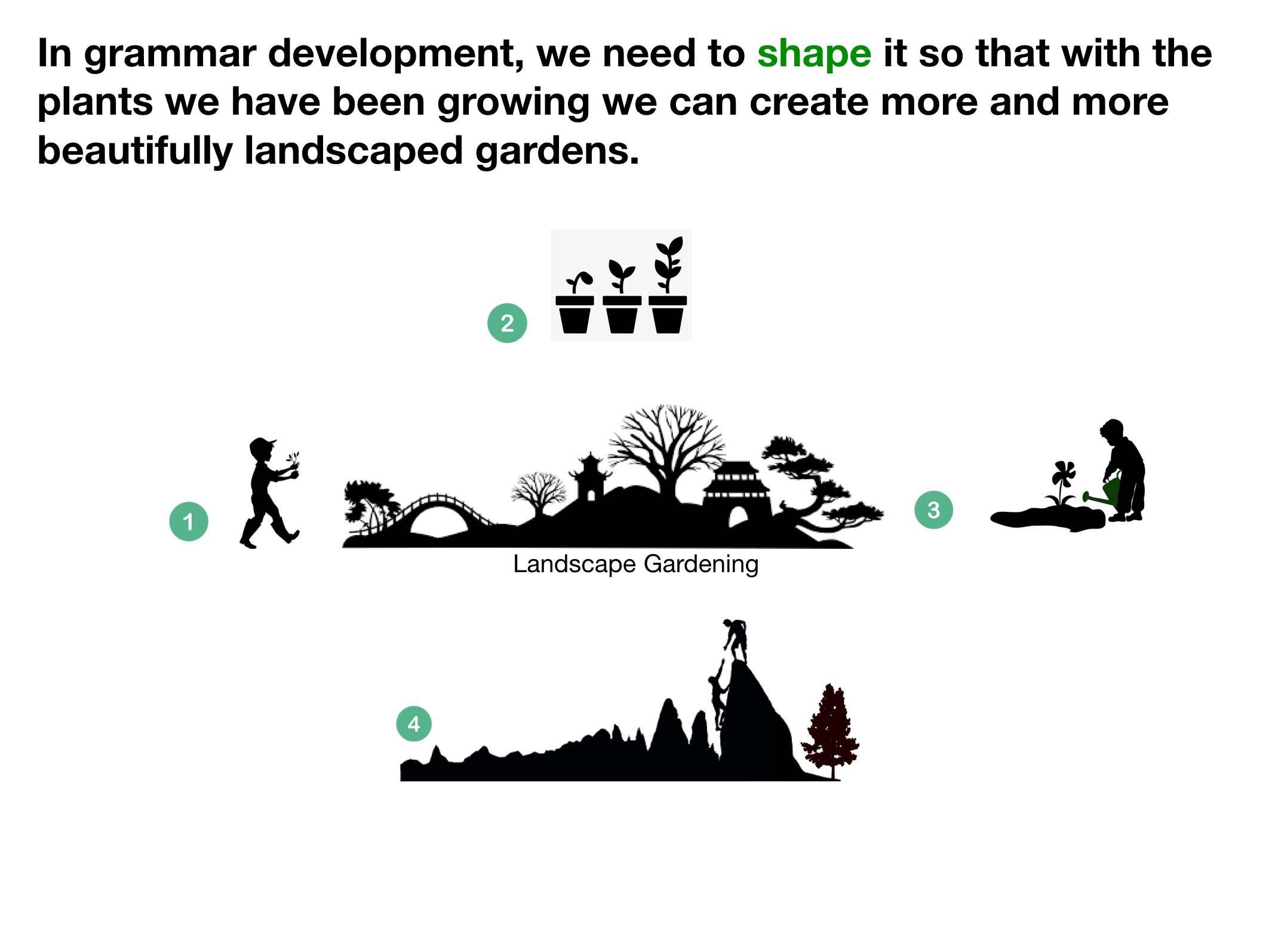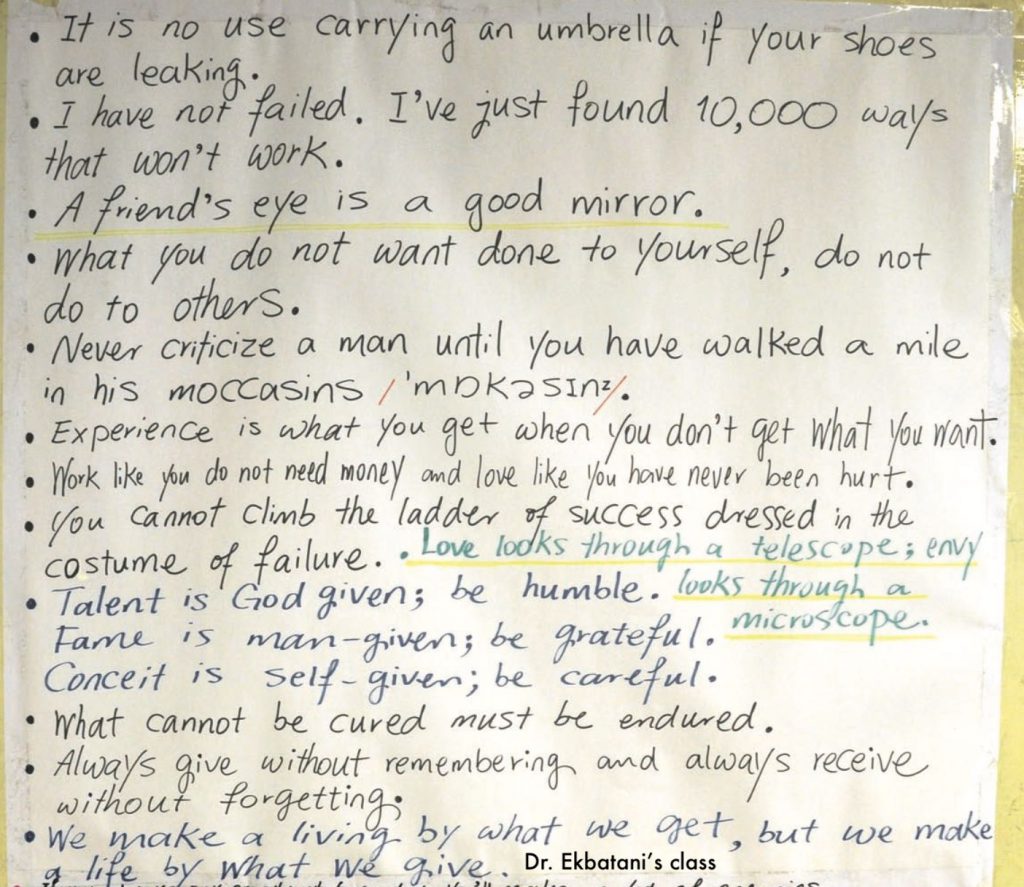
“Instead of being a dry record of facts and rules, the information in your head is a living resource that allows you to communicate and be understood” (p. 157).
– Jim Scrivener (2011)
Lexis and grammar

Lexical Expansion
In addition to gathering lexical items and collocations, we need to constantly review them to own them and use them independently in our writing and speaking. This procedure is fortified by wandering around and finding out how they have been used in other authentic materials we read and/or listen to.

Grammar Development
The arrangement of the grown lexical items and collocations next to each other requires following certain patterns which are in common use in the language; otherwise, the outcome does not look and sound pleasing to the eye and ear. In other words, we need to carefully landscape our the gardens we create, based on our knowledge of grammar.
Four Basic Steps
‘When we are learning anything new and taking it to a level of skill and mastery, we follow four basic steps’ (Dispenza, 2007, p. 452).
Ten times unassisted retrieval is required to attain mastery.
‘When we are learning anything new and taking it to a level of skill and mastery, we follow four basic steps. 1. First, we start out unconsciously unskilled. We do not even know that we don’t even know. 2. As we learn and become aware of what we want, we become consciously unskilled. 3. As we begin to initiate the process of demonstration (the “doing”), if we keep applying what we learn, we eventually become consciously skilled. In other words, we can perform an action with a certain amount of conscious effort. 4. If we go further, continuously putting our conscious awareness on what we are demonstrating, and we are successful in performing the action repeatedly, we become unconsciously skilled. When we begin the process of change, this is where we want to end’ (Dispenza, 2007, p. 452).







